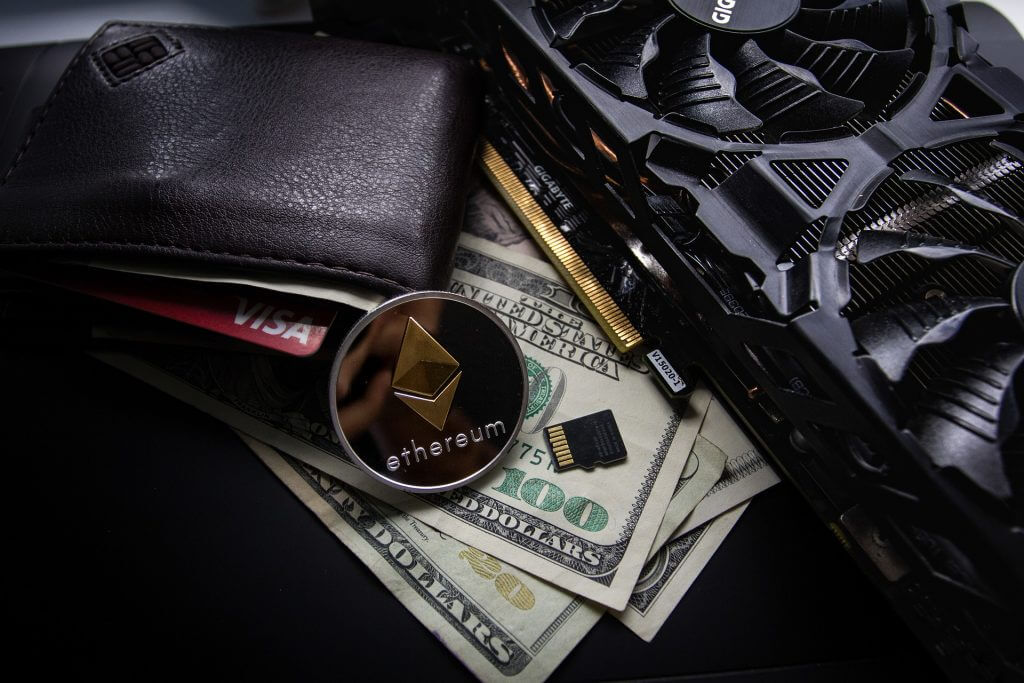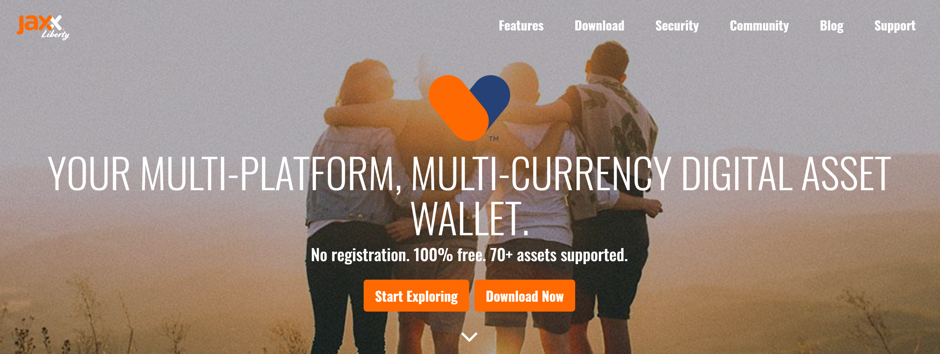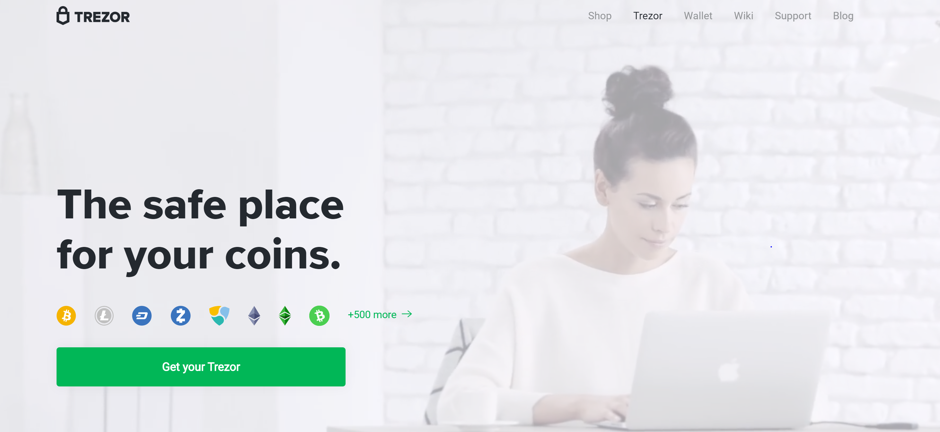
Got crypto? Then you’ve got to have a wallet. It’s that simple.
A wallet, in fact, is essential from the moment you even begin to contemplate getting crypto coins of any kind. So now that we’ve got that established, let’s see what a cryptocurrency is, what it does and how, and what to keep in mind when selection yours.
What is a cryptocurrency wallet?
A cryptocurrency wallet is a piece of software that allows you to conduct cryptocurrency transactions and stores information about these transactions on one or several blockchains. Crypto wallets do not store any assets; they are merely a gateway that you operate with your public and private keys.
How does it work?
Cryptocurrency wallets are nothing like the physical wallet you might carry in your backpack. First of all, physical wallets are “dumb”, in the sense that they hold the cash, but don’t hold the proof of origin. To have that, you yourself would need to also store receipts. Crypto wallets are smart: they not only know how much you own, but also store every transaction you’ve ever made within their ecosystem.
In fact, blockchain transactions do not occur in the traditional way of “assets changing hands”. On blockchains, the only thing that changes is ownership of the asset, and nothing is actually moved between accounts; only the key that opens the gateway changes from one owner to the next.
Let’s say Emil sends bitcoin to Anna. The bitcoin in question is a piece of code which is currently assigned to Emil’s public address. What he needs to do is to place this piece of code under Anna’s address by using his own private key, which demonstrates he owns the piece of code (i.e. the bitcoin).
We’ve mentioned public addresses, public keys and private keys. What are they?
A public address is the digital code that represents the network location of a specific cryptocurrency wallet. Each such address has a unique private key and a unique public key. The public key can be open to anyone, since it can only be used to transfer money into, and not out of the wallet. The private key should never be anything but absolutely and entirely private and secret.
Despite looking entirely different, public and private keys are, in a sense, one and the same: the public key is simply a hash of the private one. This is the beauty of cryptography: the asymmetrical code allows the software, and the software only, to decrypt the association between public and private keys. No human could reverse the hash to decrypt your private key.
What types of cryptocurrency wallets are there?
There are three main types of cryptocurrency wallets: software, hardware and paper wallets.

- Software wallets are, in turn, of three types:
- desktop – as the name suggests, they are a piece of software downloaded onto your personal machine. They are only as secure as your machine: a virus or piece of malware could effectively rob you of your crypto, without any recourse.
- online/cloud/web – they have the advantage of being accessible from multiple devices, but are also possibly the least secure, since the keys are usually stored online and your connection adds another point of failure.
- mobile – the app is downloaded to your smartphone and works much like the other software wallets. It’s probably the easiest to use, since it’s comfortable to use, but it also represents a higher security risk.

- Hardware wallets are very secure, but also more cumbersome to use. They are, as the name implies, USB or USB-like devices that can be connected to your machine. Since they are essentially offline wallets except for the short intervals when they are hooked to your computer, they are the least likely to be hacked or to constitute a point of failure.

- Paper walletsare a piece of software that partly acts like a random QR code generator. You can then print the QR code for your public and private keys and conduct transactions without storing any data online. Very secure, but obviously more cumbersome to use. On the other hand, if you trust yourself to store the keys securely, you don’t need much else.
Some swear by paper wallets, others by hardware wallets. No one will recommend that you use a software wallet, really; they’re just a tiny bit too easy to hack. Which brings us to the next topic.
Crypto wallet security
Are cryptocurrency wallets secure?
The short answer is: not really. Nothing human, especially nothing that connects to the internet, is ever 100% secure. That said, there are huge differences of degree, though.
Everyone will tell you, in no uncertain terms, that cold storage (offline, that is) is much, much safer than hot (online) storage. A hardware wallet will sit offline for most of the time, except for when you actually need to do a transaction and connect it to your computer – and, implicitly, the internet. Even when it is indirectly connected, your pin is typed into the hardware wallet. This means that, unless someone gets both your physical hardware equipment and your pin, it’s practically impossible to have your hardware wallet hacked; the same goes for your paper wallet.
The trade-off, in the case of hardware and paper wallets, is comfort and speed. And that’s a big trade-off. Imagine you need to transfer crypto right now for a big trade. You’d have to take out the hardware wallet, get it going, wait forever for confirmation etc. No wonder adoption is not exactly massive.
How can you protect your cryptocurrency?
Let’s begin with basic advice: don’t keep your crypto in an exchange. Most exchanges offer this wallet-like function, and it’s tempting to use it just to avoid waiting around for transactions to go through while the price of your crypto has dropped 20% in one hour. However, centralization is not safe, and exchanges represent a single point of failure. And, despite experience and effort, dozens fail every year.
Another rule of thumb: don’t click weird links, and even those that look legit should be examined twice. Same goes for websites, ads etc. Check that the website address is correct (Coinbase vs CoInbase etc.) – quite often, scammers take you to mirror sites that look like the original but try to get you to spend your coins or fill in your private keys. Other potential avenues of attack are key loggers, phishing, viruses or the plain old staring over your shoulder in a café where you’re just checking in on your crypto wallet.
Set up 2FA (two-factor authentication) for everything that allows it. You always have your phone on you anyway, why not use a 10-second gesture to keep your assets safe? You should practice it in all realms of technology, really. In fact, it wouldn’t be nuts at all to use multisig wallets, i.e. wallets that require you to authenticate a transaction by two separate devices. This way, just in case a hacker stole your phone, they wouldn’t be able to sign in since they lack your second authentication device.
Finally, it bears repeating what you must have heard a dozen times: never, ever give anyone your private keys, or allow them to become vulnerable in any way. Don’t write them on a piece of paper that you keep in your wallet, don’t store them openly on your computer or mobile phone. Find a way to keep the digital keys accessible for you alone, if possible, and incomprehensible for anyone else: mnemonics, code, descriptive graphics might work.
How to choose your wallet
There are quite a few considerations when choosing your cryptocurrency wallet, especially since they directly impact what happens to your crypto.
- regulation – are these cryptocurrency wallets allowed in your country?
- fees – some claim that the biggest exchanges, like Coinbase and Binance, are charging much more than they should. Check the policy of the website you’re considering. Boring, but essential.
- speed of transaction – another big one. Read the reviews, since things change pretty quickly in this field, and imagine a case where Bitcoin is dropping massively and you want to sell and get out. Could you? Speed matters.
- cryptocurrencies supported – that’s a no-brainer. What are you going to trade? No wallet supports everything, so you’ll have to have several wallets, most likely. You can pick the blockchain wallet for each crypto you want to store or choose a multicurrency one. It all depends on what you’re planning to do.
- user interface – that, too, can have an impact. These cumbersome interfaces show little oversight of operations.
- security – we’ve mentioned before how everything revolves around what you do, really. Crypto wallets are not only as secure as owners make them, but as secure as you make them.
It’s hard to give advice on something as personal as choosing your wallet. You may be attracted to a prettier wallet that’s funny and fast, and I may like a stern interface and more options at the expense of speed. It’s essential, however, to do your research and put this checklist to work to be sure you’re making the right decisions.
